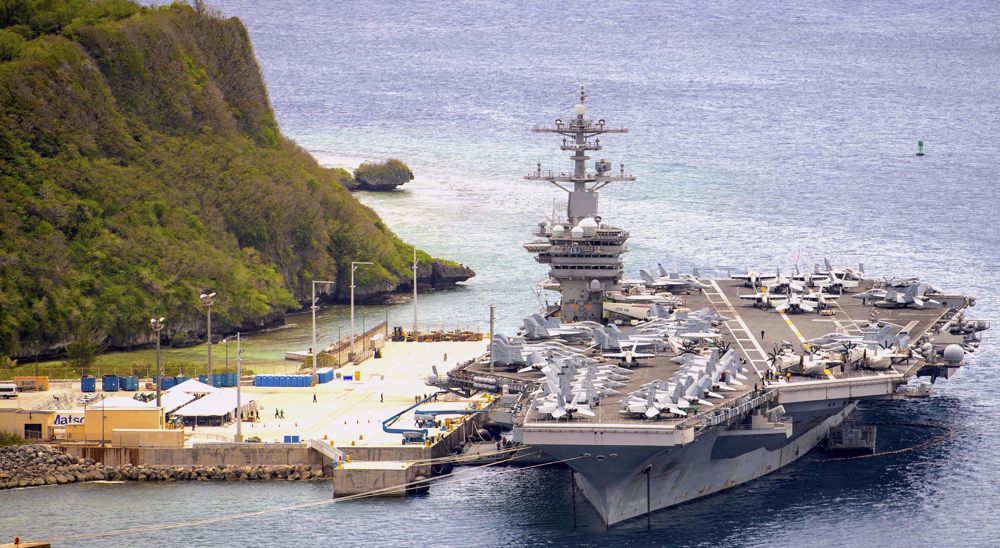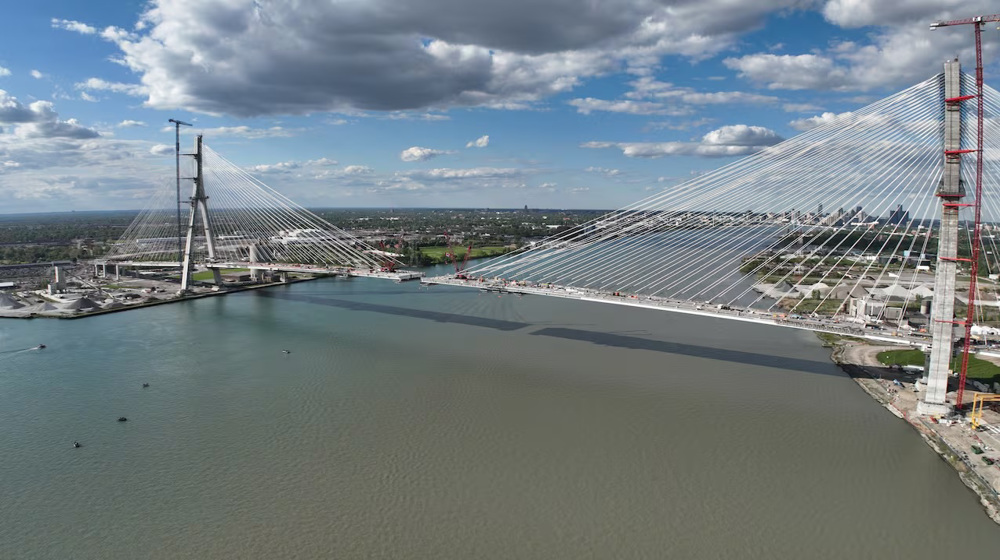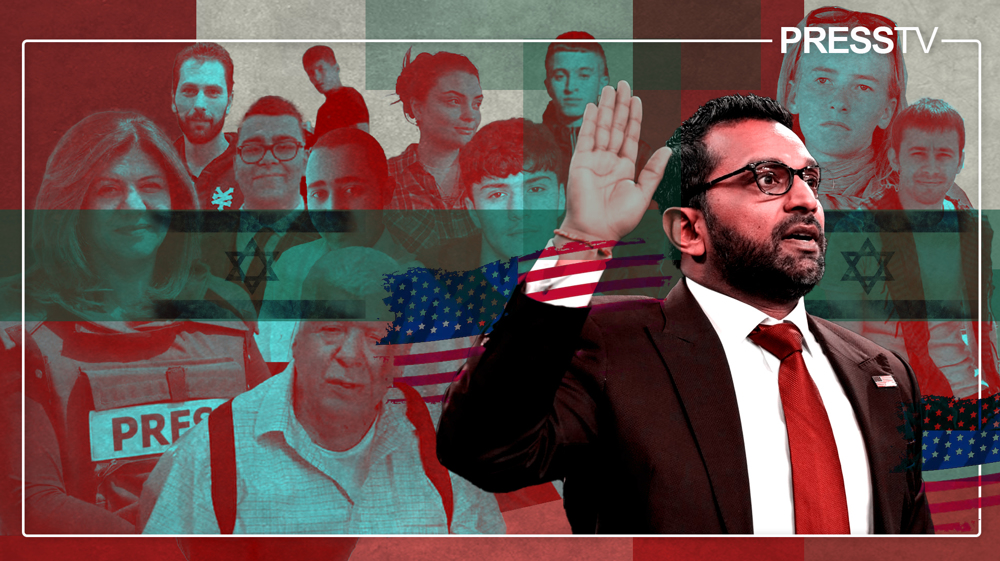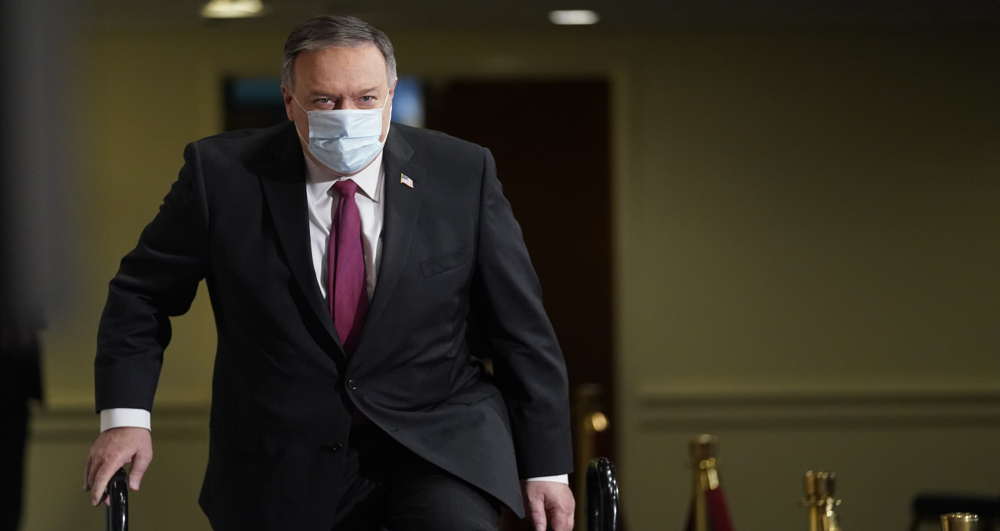US sends carrier to South China Sea after Beijing gives fire order
The US has dispatched an aircraft carrier group to the South China Sea, in a move that is set to escalate tensions after China authorized its coast guard to open fire on foreign vessels deemed to pose threats to its sovereignty.
The US military said Sunday that the strike group, led by the USS Theodore Roosevelt, entered the South China Sea on Saturday.
“After sailing through these waters throughout my 30-year career, it’s great to be in the South China Sea again, conducting routine operations, promoting freedom of the seas, and reassuring allies and partners,” said commander of the strike group Doug Verissimo.
“With two-thirds of the world’s trade travelling through this very important region, it is vital that we maintain our presence and continue to promote the rules-based order which has allowed us all to prosper,” he said.
China claims sovereignty over almost the entire South China Sea, but Washington sides with China’s rival claimants in the sea, accusing Beijing of seeking to extend its sphere of influence in the region.
The United States routinely sends its warships and warplanes to the South China Sea to assert what it calls its right to “freedom of navigation.”
China has constantly warned Washington against military activities in the sea, saying that potential close military encounters by the air and naval forces of the two countries in the region could easily trigger accidents.
Taiwan says Chinese warplanes entered its airspace
The latest US deployment came after Taipei said Chinese warplanes, capable of carrying nuclear weapons, had entered Taiwan’s airspace.
China regards Taiwan as a breakaway province which it has vowed to retake, by force if necessary, but a stepped-up US engagement in the dispute has escalated tensions, with Beijing warning against Washington's interference in its internal affairs.

Taiwan’s defense ministry on Saturday said China had sent several warplanes to the southwestern corner of the island’s air defense identification zone. It said eight nuclear-capable H-6K bombers and four J-16 fighter jets flew over the island.
US says supports Taiwan, accuses China of intimidation
The US State Department immediately reacted to the claim, calling on China “to cease its military, diplomatic, and economic pressure against Taiwan.”
State Department spokesman Ned Price said the US “notes with concern the pattern of ongoing (China's) attempts to intimidate its neighbors, including Taiwan.”
“We will continue to assist Taiwan in maintaining a sufficient self-defense capability,” he added defiantly.
China says its military exercises are aimed at defending the country's sovereignty and security in the region.
The reports of new overflights came after former US secretary of state Mike Pompeo took a controversial step to lift Washington's “self-imposed” bans on meetings with Taiwanese officials in the final days of the Trump administration.
The move worsened the already tense relations between Washington and Beijing.
Under the “One China” policy, almost all world countries including the US recognize China's sovereignty over Taiwan and refuse to have formal relations with Taipei.
The Trump administration, however, constantly supported the island’s secessionist president Tsai Ing-wen and provided her government with some advanced weapons.
Relations between China and the US hit their lowest point in decades, as Donald Trump launched a damaging trade war with China, imposing sanctions on the country and clashing with the Asian power over a series of issues.
A senior lawmaker for Taiwan’s ruling Democratic Progressive Party, Lo Chih-Cheng, told Reuters that through the recent overflights, Beijing was trying to deter the new US government from backing the island.
“It’s sending a message to the Biden administration,” he said.
President Joe Biden, who took office earlier this week, has so far shown no sign of changing the former administration’s tough policy on China.
According to Lanhee Chen, director of domestic policy studies and lecturer at Stanford University, Biden’s team has shown “early signals” that the new president “may change the tone and tenor of the conversation with Beijing — but they’re not really gonna change the policy."
Chinese President Xi Jinping sent a message of congratulations to Biden on Wednesday, saying he hoped Beijing and Washington could focus on cooperation and keep their differences in check.
Xi has become one of the last major world leaders to congratulate the new president of the United States.
VIDEO | Indian regions celebrate Iran’s Islamic Revolution anniversary
Iran’s missile program will never be on negotiating table: Shamkhani
Hezbollah: 47 years of Iranian progress proof of ‘abject failure’ of Western plots
Iran’s Larijani meets Qatari emir amid nuclear talks with US
VIDEO | 47th anniversary of Islamic Revolution celebrated at Iran's Embassy to Holy See
VIDEO | Sana’a marks February 11 anniversary with mass rally at US embassy site
VIDEO | Iran’s Embassy in Ethiopia celebrates 47th anniversary of Islamic Revolution
Saudi leaders congratulate Iran on 47th anniversary of Islamic Revolution
















 This makes it easy to access the Press TV website
This makes it easy to access the Press TV website